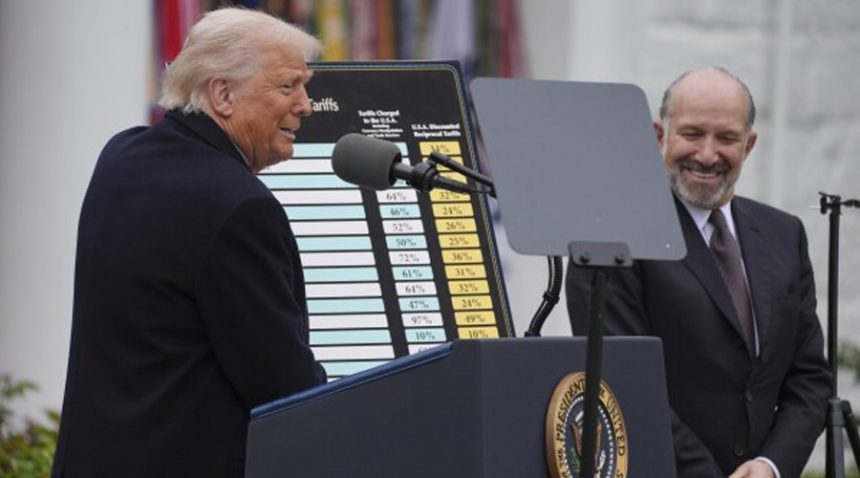Tariffs hit 125%, Markets tumble, Delisting Chinese stocks—is it next?
The United States is experiencing a significant shift in trade policy under President Donald Trump’s second term. The administration has introduced a series of tariffs aimed at addressing trade imbalances and protecting national interests. These measures have raised concerns about the potential delisting of Chinese companies from U.S. stock exchanges, a move that could have profound implications for global markets.
Escalation of Tariffs
The trade war intensified on April 9, 2025, when President Trump announced a 125% tariff on Chinese goods, citing China’s substantial trade surplus and alleged economic exploitation of the U.S. This move followed a series of incremental tariff increases earlier in the year, including a 10% baseline tariff in February and subsequent hikes in March and April. In retaliation, China imposed an 84% tariff on U.S. goods, further exacerbating tensions between the two economic superpowers.
Market Repercussions
The escalating tariffs have had immediate and significant effects on global financial markets. Major U.S. stock indices experienced sharp declines, with the Nasdaq falling by 5.25%, the S&P 500 by 4.5%, and the Dow Jones Industrial Average by 3.67%. High-profile companies such as Apple, Meta, Tesla, and Microsoft saw substantial losses, reflecting investor concerns over the potential economic fallout from the trade war.
Potential Delisting of Chinese Companies
Amid the intensifying trade conflict, the Trump administration has signaled that delisting Chinese companies from U.S. stock exchanges is under consideration. Treasury Secretary Scott Bessent stated that “everything’s on the table,” indicating that the administration is exploring all options to counter China’s economic practices. Analysts suggest that while immediate action is unlikely, the risk of delisting has increased, particularly for major Chinese firms like Alibaba, JD.com, and Baidu.
Regulatory and Political Factors
The possibility of delisting is influenced by both regulatory and political considerations. U.S. laws, such as the Holding Foreign Companies Accountable Act, require foreign companies to comply with American auditing standards. Failure to meet these requirements could lead to delisting. Additionally, there is growing bipartisan support in Congress for taking a tougher stance on Chinese companies, further increasing the likelihood of regulatory action.
Impact on Chinese Companies
Chinese companies listed on U.S. exchanges are facing increased scrutiny and uncertainty. The potential for delisting has led to volatility in their stock prices and raised concerns about their access to capital markets. Some companies are exploring alternative listings in markets like Hong Kong or Singapore to mitigate the risks associated with U.S. regulatory actions.
Global Economic Implications
The escalating trade war and potential delisting of Chinese companies have broader implications for the global economy. Supply chains are being disrupted, investor confidence is shaken, and the prospect of a prolonged economic downturn looms. Countries closely tied to both the U.S. and Chinese economies may face difficult choices as they navigate the fallout from the deteriorating relationship between the two powers.
The intensifying trade conflict between the United States and China, marked by escalating tariffs and the potential delisting of Chinese companies from U.S. stock exchanges, represents a significant shift in global economic relations. While immediate delisting actions are not confirmed, the increasing tensions and regulatory scrutiny suggest that such measures are within the realm of possibility. The situation warrants close monitoring, as further developments could have far-reaching consequences for international markets and economic stability.






